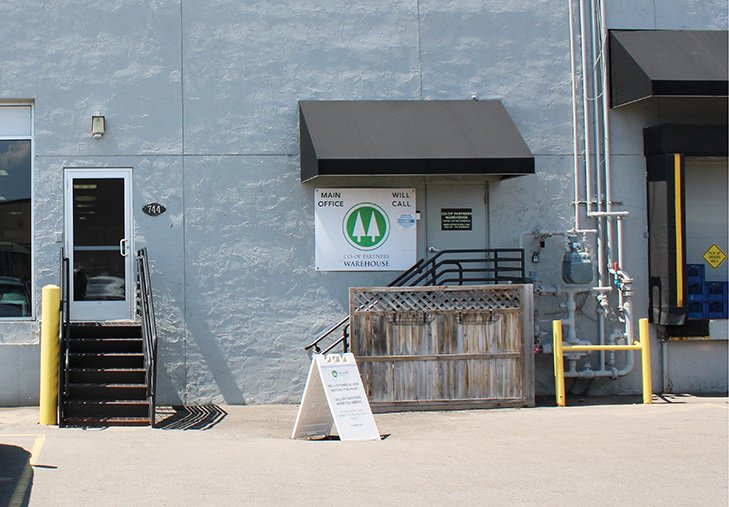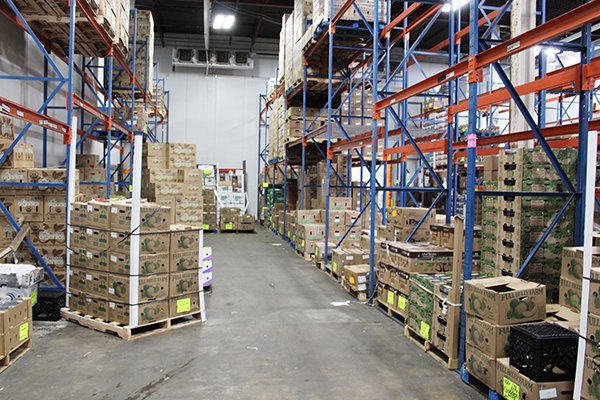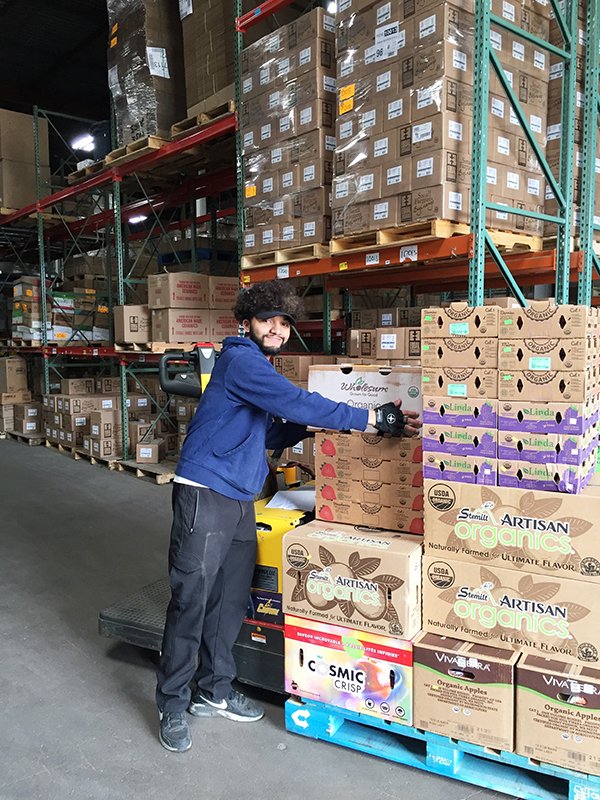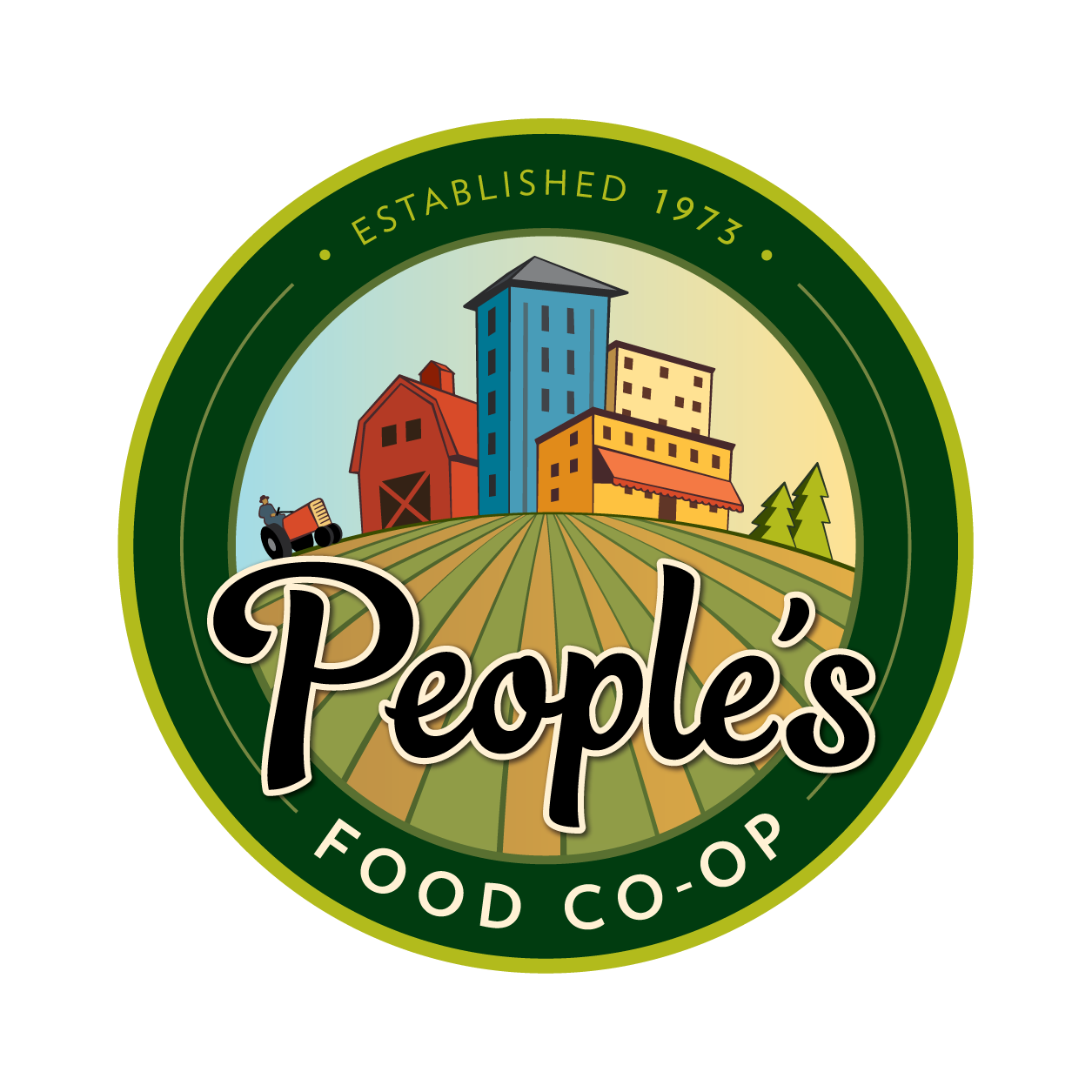Co-op Partners Warehouse



People’s Food Co-op has a friend in Minneapolis. The Co-op Partners Warehouse, or CPW, has worked with PFC for many years to bring fresh produce and other products to our shoppers in La Crosse and Rochester. We visited recently with CPW’s Lori Zuidema, Senior Manager of Strategic Initiatives, to learn more about the story behind CPW.
Co-op Partners Warehouse operates out of a small warehouse just north of University Avenue in the industrial zone between the Twin Cities. The building is nondescript, a single-story warehouse in a row of warehouses in a neighborhood of warehouses. Except for the twin pines co-op symbol posted on the wall beside the door, you wouldn’t know that you’d found the central warehouse for many of the best groceries in America.
The warehouse is actually a series of connected warehouses. Because they handle so many different kinds of products that require different temperatures and humidities to keep the berries and melons dry and the cheese and dairy cold, CPW occupies a series of discrete warehouse spaces with interconnecting, air-lock doors.
CPW works with local farmers—vegetable growers and dairies—but they also work with local artisans, chip makers, kombucha brewers, syrup, and bagel makers, all folks who want to get their products to market. They also act as a distribution hub for organic farmers from the West Coast and other parts of the United States. CPW supplies groceries, restaurants, and schools throughout the region from the Dakotas to Michigan’s Upper Peninsula and south to Illinois and Iowa.
CPW’s service is a great deal for PFC’s local farmers. Featherstone Farm, out of Rushford, Minnesota, for instance, can bring one delivery of butternut squash to CPW and the warehouse then takes care of distributing the squash to dozens of Featherstone customers in the region. The truck going out from the warehouse to La Crosse will have Featherstone produce, but also might have anything from dairy from Kalona to lettuces from California and Equal Exchange bananas from Peru. It saves on mileage for the growers, and your local farmer doesn’t need to maintain a delivery fleet.
The Warehouse works with about 40 local farms, a half-dozen dairies, and around 100 grocery suppliers. CPW trucks visit People’s Rochester store three times a week, delivering local produce. Kathy Smith, produce manager in Rochester, reckons that local produce from CPW constitutes “up to 40% of local produce in the peak season.” In La Crosse, CPW makes four deliveries a week, and Hans Johansen, produce manager, believes that up to half of our local produce is supplied by the Warehouse. Hans notes that the store’s grocery and deli departments also source local ingredients through CPW.
Rick, Co-op Partners Warehouse.
Bringing the farm to market
The folks at CPW are proud of the work they do with farmers and grocery producers, helping them to find suitable shipping and packaging to meet market requirements. “People sometimes bring in stuff packaged randomly,” Lori says. CPW helps small producers prepare their products for the requirements of the market.
For example, last summer People’s Food Co-op was lucky to have delicious watermelons at the height of the season. That was a project of CPW. They worked with a coalition of Black farmers in southern States to supply 46 bins of watermelon to the upper Midwest. CPW worked with the southern farmers to bring the watermelons north, supplying the infrastructure that made the deliveries happen.
The American food system channels food sourcing in ways that may not make sense in a country undergoing climate change. For example, California’s Imperial Valley has been an agricultural powerhouse for decades, yet the valley is a desert and is facing catastrophe now that the Colorado River is drying up and the mega-drought in the West continues year after year. In many ways climate change represents opportunity for growers in other parts of the country. “California has the infrastructure all set up; all the post-harvest handling is there. Georgia doesn’t have that,” Lori says.
CPW beginnings
Co-op Partners Warehouse started over two decades ago as an off shoot of the Wedge Co-op in Minneapolis. Edward Brown, the then-produce manager at the Wedge, wanted to buy more produce directly from his growers. He also hoped to grow markets for local farmers. “[CPW has] gone from a subsistence level business with four customers to over 400 now,” Lori says. They started with just a couple of employees and now have over 60 on staff. It took a co-op to recognize a business opportunity helping other businesses come to market.
Small farmers are often looking for ways to reach bigger markets but are often too overloaded with the business of farming to take on the organizational tasks of developing business contacts at food co-ops and restaurants and the headaches of maintaining a trucking business. As their name implies, the folks at Co-op Partners Warehouse work to form cooperative partnerships with our local suppliers to help them succeed.
Co-op Partners Warehouse distributes both big California growers and local farmers. The Warehouse makes it work by taking advantage of the large producers’ built-in profit. “We max out our margins on the local stuff,” Lori explains, so that small, local farms can afford the service and make some money in return. “What American consumers spend on food is so cock-eyed compared to other countries,” she says. “If the strawberries aren’t $2.99 like they are at Walmart, they won’t buy. We always try to have lower pricing where we can.”
The co-op aspect of CPW helps counterbalance corporate farms and producers, who have advantages when it comes to marketing and getting their products into consumers’ kitchens. CPW’s mission is to partner with small farmers and family farms who practice sustainable, organic agriculture, helping them to succeed by increasing their access to consumers. As Lori notes, that’s often a matter of getting the word out about the benefits of buying local and organic. “There’s a cost associated with letting your chickens run around and have sunlight. And co-op shoppers will balk at the price. These are perceptual issues. A lot of big companies are doing the “down-home” thing, that they’re a small mom-and-pop business, but it’s not true.”
Changing climate
Since a big part of the Warehouse’s business is trucking, their costs have increased dramatically as the price of gas went up. “Shipping costs on a pallet of broccoli from California used to be $250, now it’s $400 to $470,” Lori says.
The ongoing drought in California will also continue to affect produce pricing adversely. “Climate change is here and it’s going to affect our food supply in a big way,” Lori notes. “Local food is going to be more important as the drought continues in California.”
As the local food system continues to grow, CPW will be well placed to help facilitate that growth. “We’re still struggling, but we’ve grown in terms of our purchasing power. We have the reach and volume to strengthen the local food system. We want to be a year-round supplier,” Lori says.
Co-op Partners Warehouse is PFC’s partner in the business of growing our local food system.


